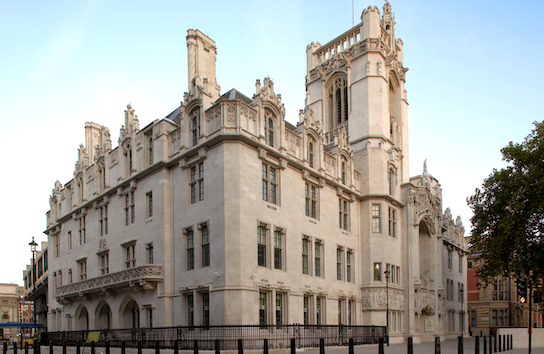The Founding Fathers of the United States, in their Ur-wisdom, laid it down that the Supreme Court should consist of 6 Justices. Britain, in its belated imitation of the United States, created in 2009 a Supreme Court of 11. That meant in the first place jobs for the boys, and girls. There are 3 female justices, including the president, who compose an upmarket version of the Pearly Queen in their modish attire. Each one is a homage to Evelyn Waugh’s Lady Metroland (the former Margot Beste-Chetwynde). One is glad to see this evidence of women making their way in a harsh, male-dominated world. There is however a downside to this triumph of progressive thinking. With the number set at 11, all of whom turn out for the big occasion on TV, the Supreme Court takes on the aspect of a focus group of the law. Quot homines, tot sententiae, as an earlier lawyer, Terence, said. And the future of this Supreme Court will be driven by the forces of gender balance and diversity, which it will embrace.
The immediate issue is the Court’s judgment on the executive’s prorogation of Parliament. The Court had been warned well in advance of the dangers of venturing into territory that could properly be termed “political.” Yesterday the Court ventured boldly into that territory. With impressive unanimity, the Court found that the question of prorogation was justiciable, and that, having awarded itself that right, determined that the prorogation was unlawful. The Attorney General had advised the Cabinet that prorogation was lawful, and is somewhat embarrassed by the Court’s findings. But the larger questions remain. Are we looking at a landgrab by the Supreme Court? In the great State triangle of Downing Street, Parliament, and the Supreme Court, is the Law encroaching upon the functions of the executive and using the legislature to enforce its will? Evidently, Boris Johnson’s motives in seeking prorogation were in part political. How could these motives be sifted by the Court? And how declare some of the illegitimate? Yet the Court under its highly activist president, Lady Hale, took upon itself to judge that the undeclared reasons for the Prime Minister’s decision to prorogue Parliament were enough to call his decision unlawful. This looks highly questionable, and Boris Johnson has said that he “strongly disagrees” with the Court’s decision but will obey it. Others will find their reasons.
For the public, it all looks like the European Union system of acquiscommunitaire, ground once taken is never relinquished. But the ground will come under serious challenge. Any glib comparison between the US and UK Supreme Courts fails at once: American nominees must face serious challenge and questioning by Congress. In Britain the Law selects and judges itself, without recourse to outside aid in the matter, like the EU which decides its Commissioners without public scrutiny. You can see why the ruling class adores the EU. In general, the British public knows only the c.v.’s of the Supreme Court members. It might well want to know more, but is denied any voice. It is a safe prediction that the public will become more engaged with the views and records of its Supreme Court justices, the voices through whom the Establishment speaks.

Leave a Reply